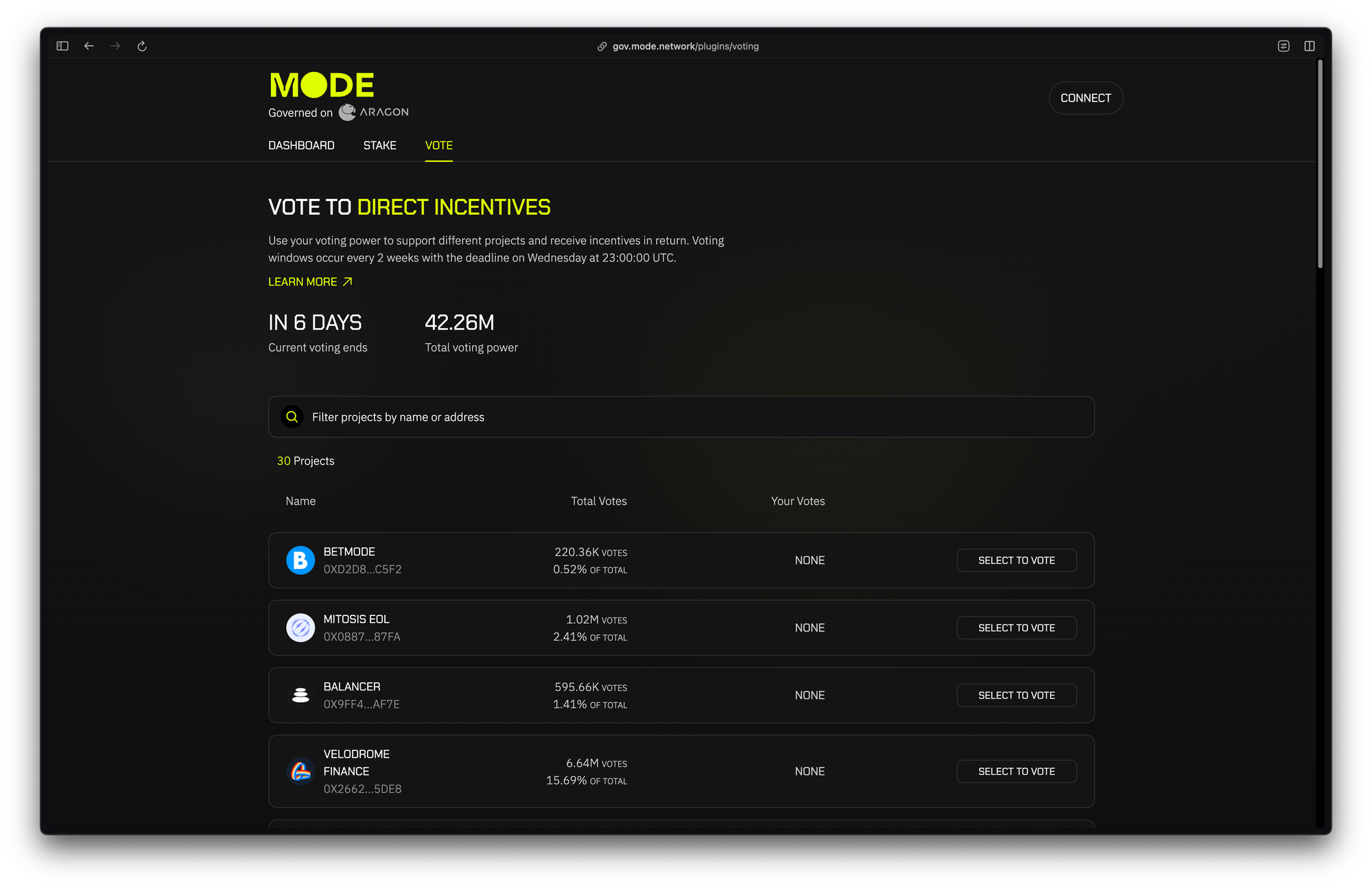
Mode became the first L2 to introduce vote escrow (ve) and gauge-based governance to its ecosystem—modernizing a long-standing governance model implemented by successful DeFi protocols. In Season 3, the Governance Games incentivized community members to stake tokens for increased voting power, directing rewards to protocols via gauges. The results are exciting:
Here's how Mode addressed persistent challenges in L2 governance to achieve high participation rates:

Token-based delegate voting—a common onchain governance model for L2s—faces significant challenges:
These issues reduce the effectiveness of governance decisions and discourage broad community participation, undermining alignment between stakeholders.

To address the challenges of traditional onchain governance, Mode introduced a modernized ve and gauge-based governance model—drawing inspiration from DeFi governance, lessons from past Seasons, and working alongside experts from Aragon, Balancer, and Aura.
At the core of this model: community members stake tokens to gain voting power (represented as veTokens), which they can allocate to gauges. Gauges determine how rewards are distributed across protocols in the network. This design removes the need for continuous voting while offering voters flexibility to reallocate their power each epoch.
Mode’s implementation incorporated unique features to adapt the governance model to the needs of their community:
The incentives for both veMODE and protocols adapt from season to season, keeping governance responsive and adaptable to ecosystem and market dynamics.

Mode built its governance on Aragon OSx, a modular DAO framework enabling secure and customizable governance solutions.
To simplify otherwise complex implementations of ve governance, the Aragon team built a modularized ve contract library, allowing Mode to customize key parameters efficiently and safely, without needing to draw on resources from their development team.
The architecture includes a core contract that acts as the controller, managing the main staking and unstaking logic while connecting to sub-contracts that handle specific components:

Mode used Aragon OSx’s plugin architecture to deploy its gauge-based governance system. The plugin enables veToken holders to allocate their voting power to a predetermined list of gauges, setting a percentage of their voting power to direct rewards to protocols. Once voting power is allocated, there’s no need for repetitive votes—holders simply reallocate as needed at the start of each epoch.
The modularity of Aragon OSx allows Mode to adapt with learnings. Plugins can be installed, updated, or removed as the community and ecosystem evolve. This flexibility is critical for Mode’s seasonal governance, where learnings from one season shape the next.

Aragon OSx empowers governance innovation with a secure, modular framework. By modularizing ve contracts, Aragon makes it simple for projects to customize governance models to fit their ecosystems and communities.
Want to implement a custom ve model for your project? Reach out here.